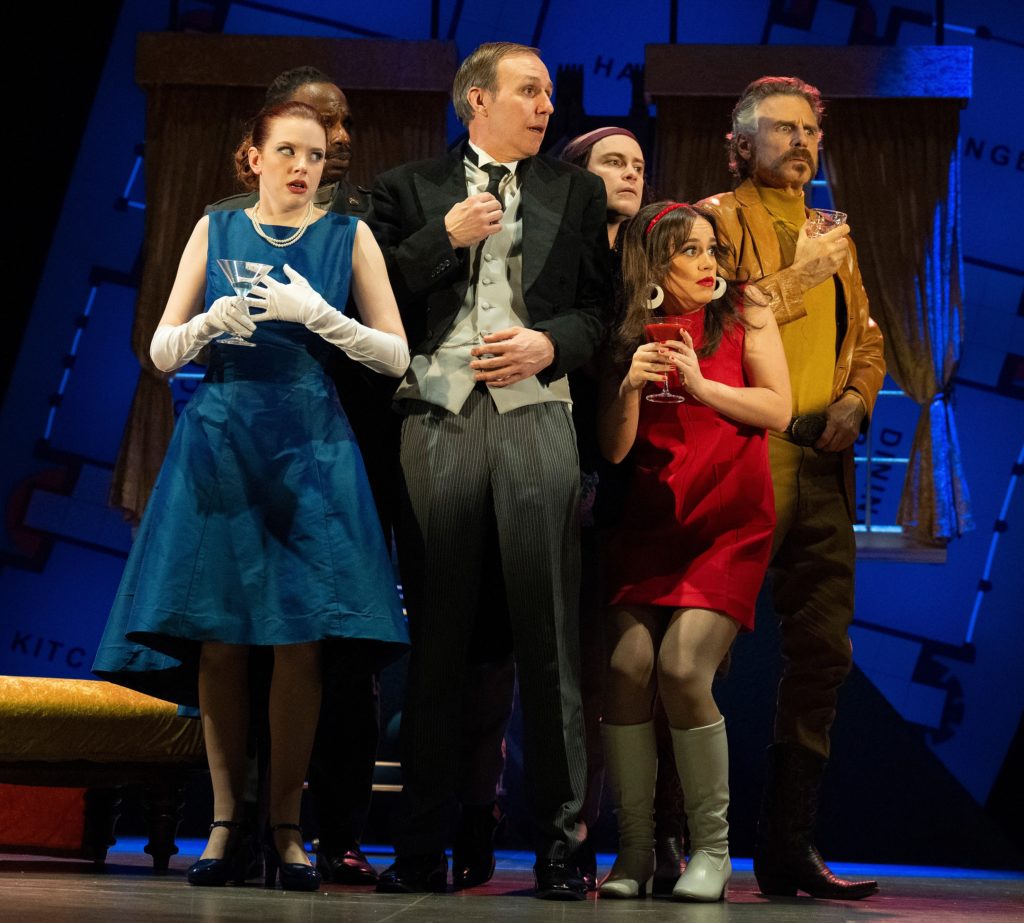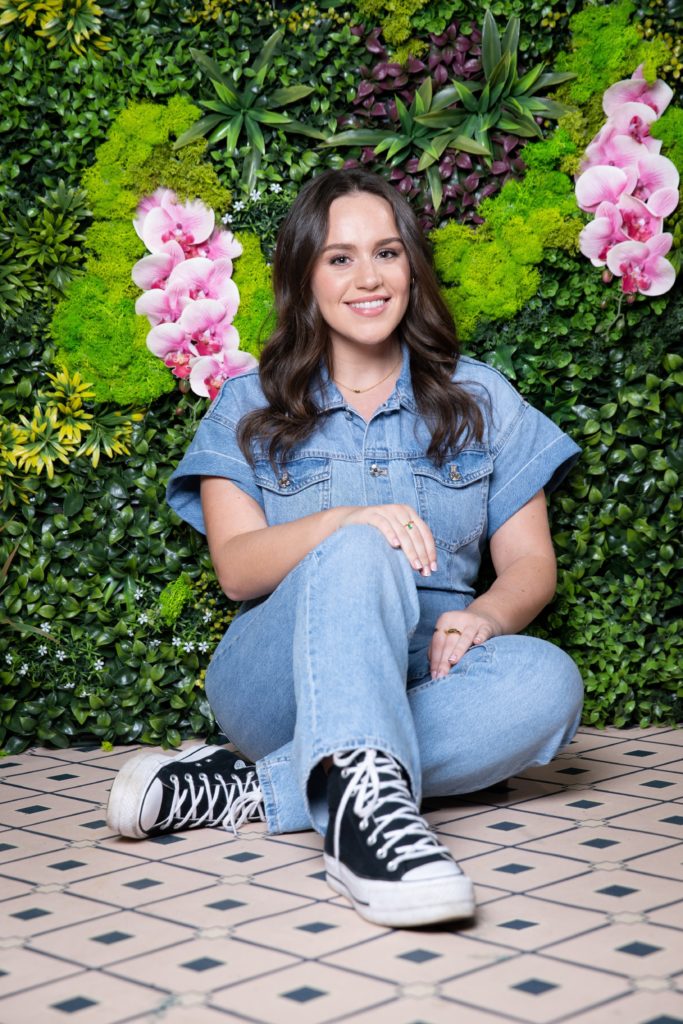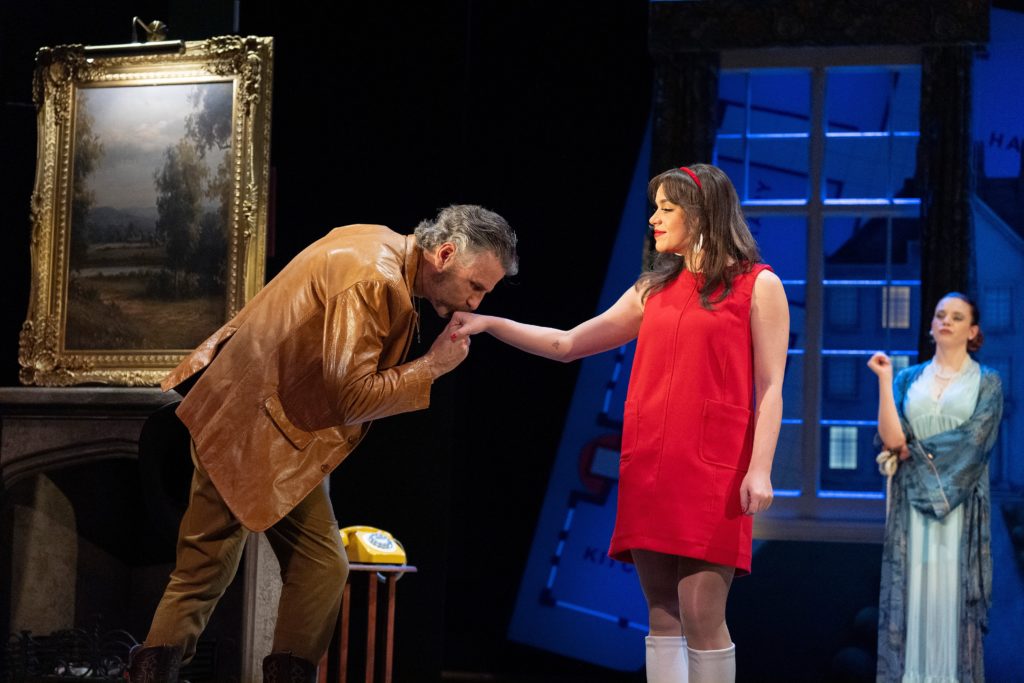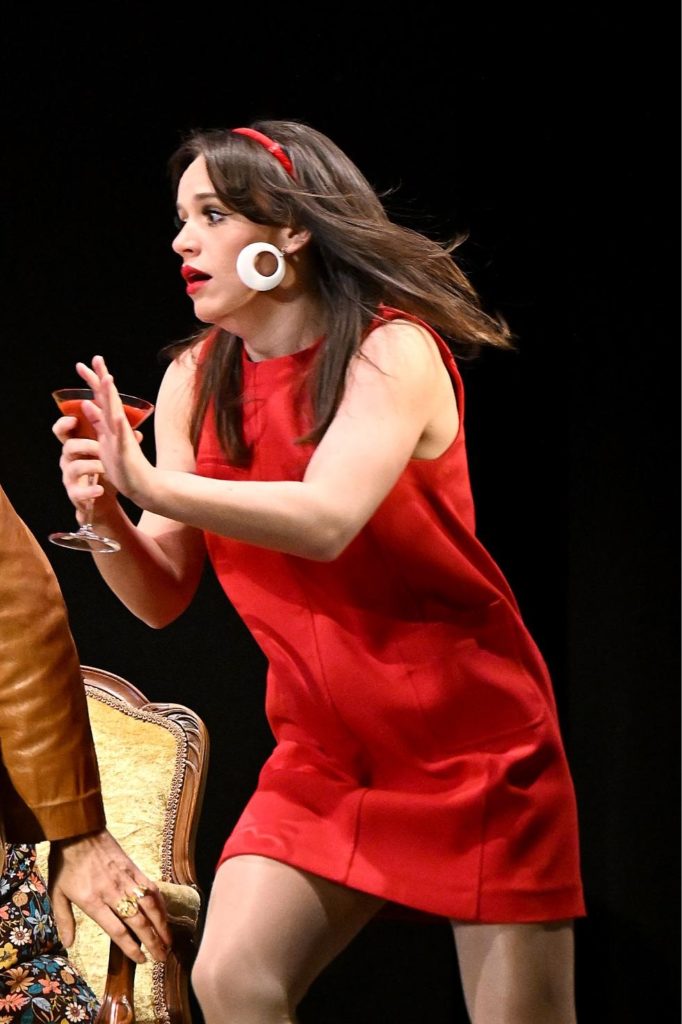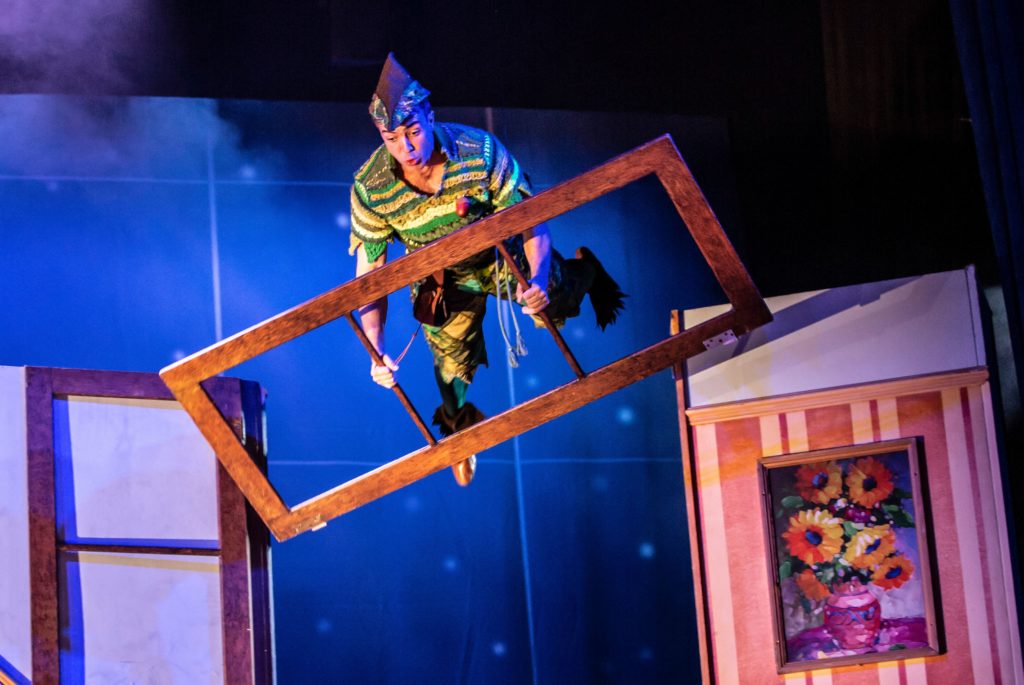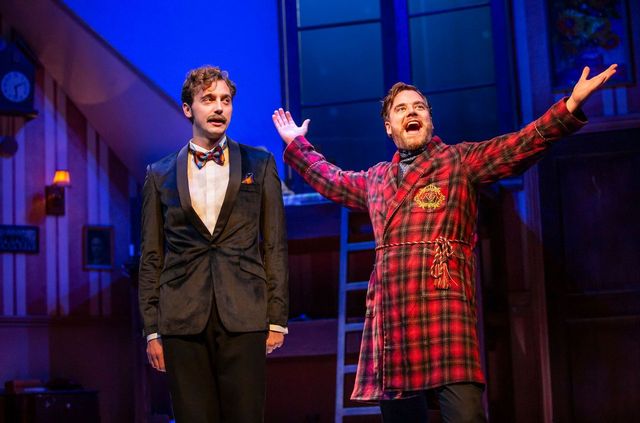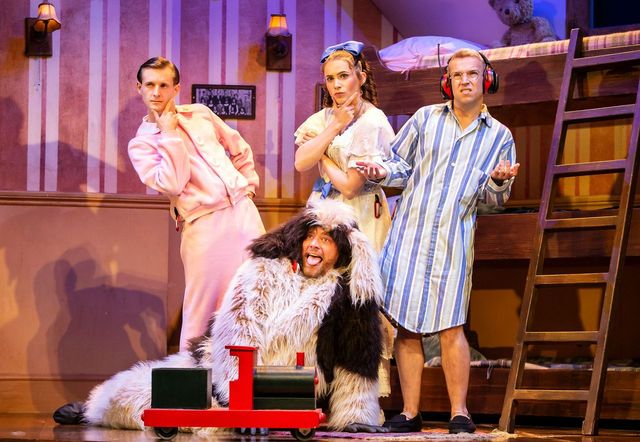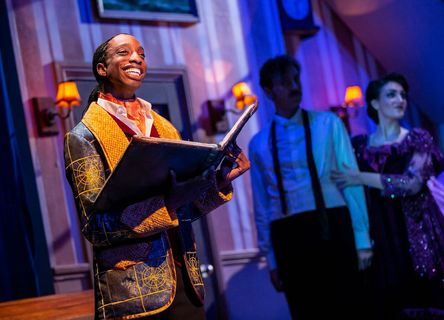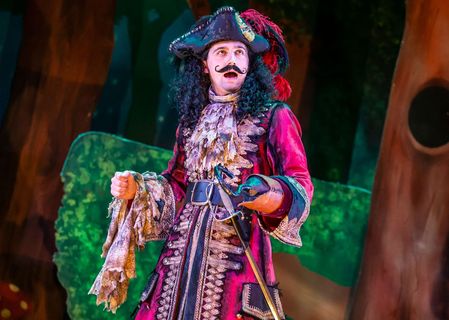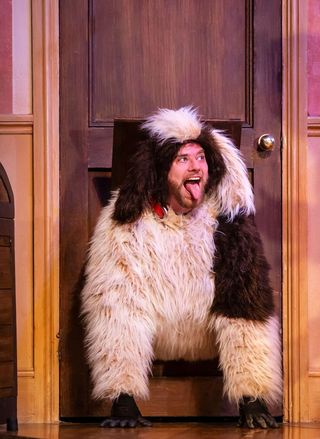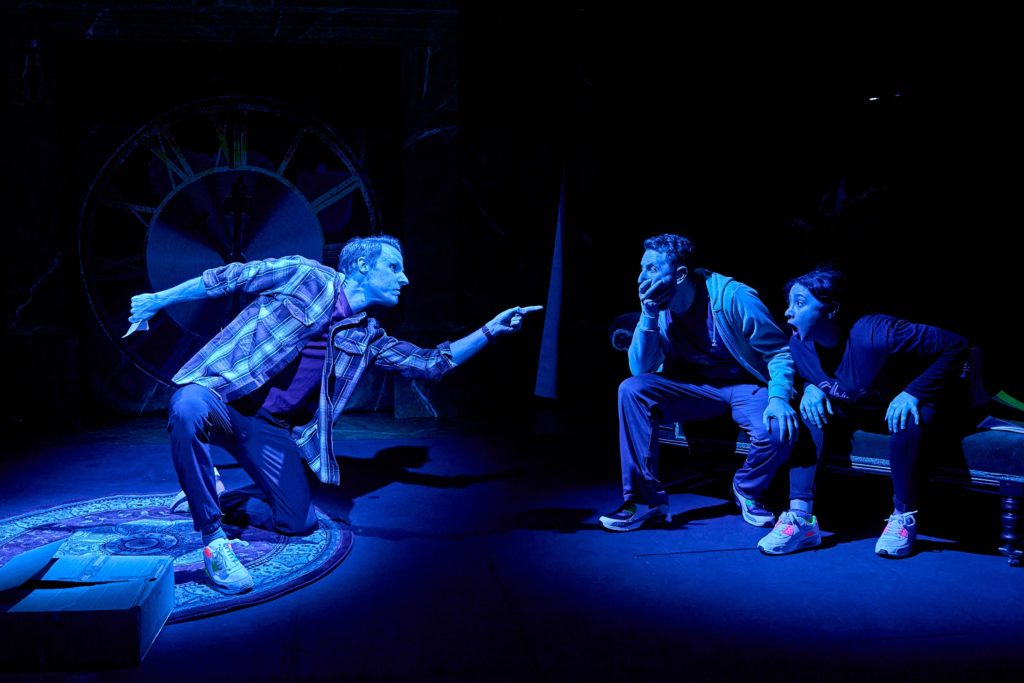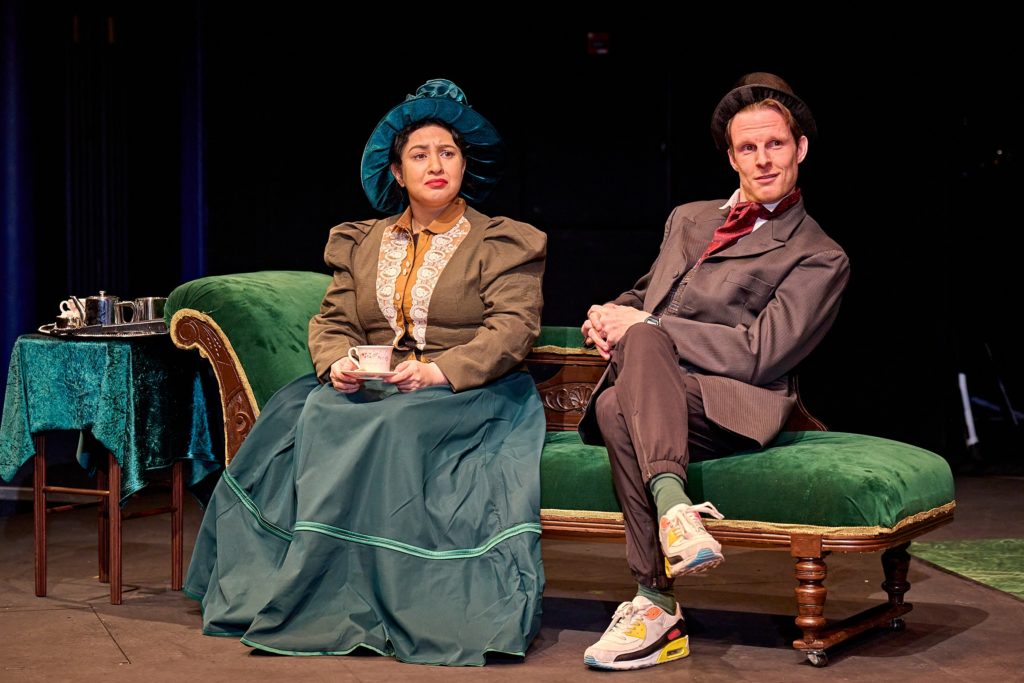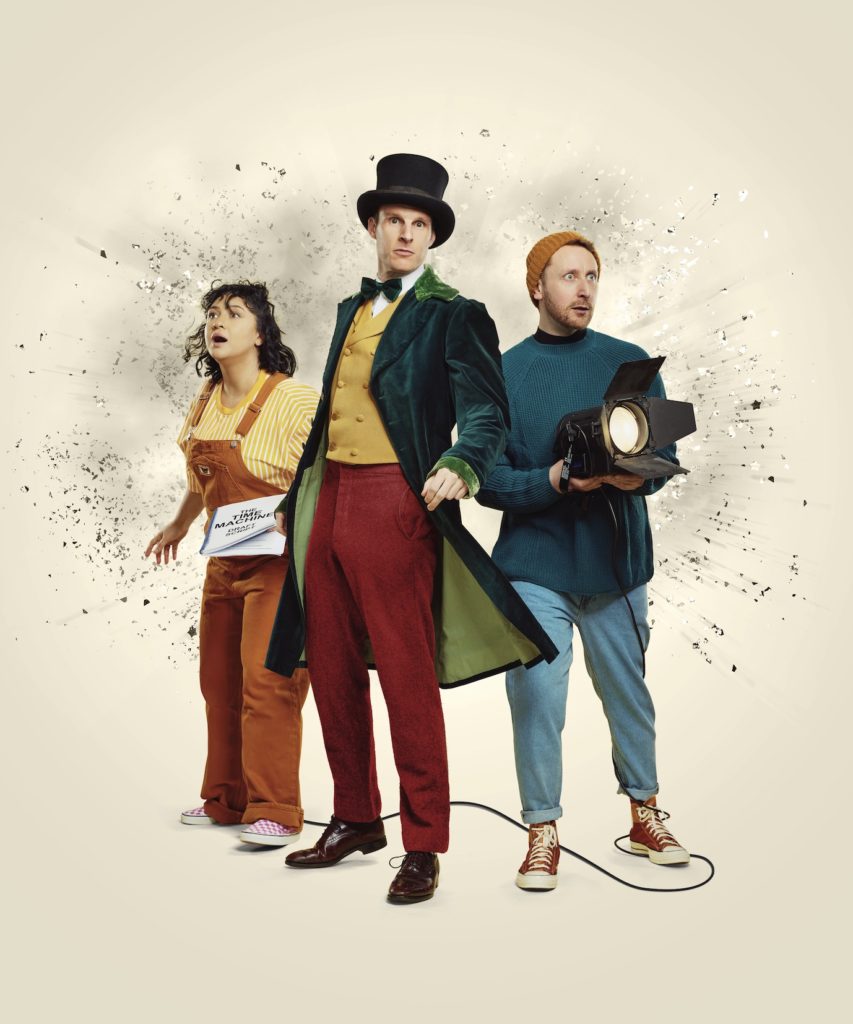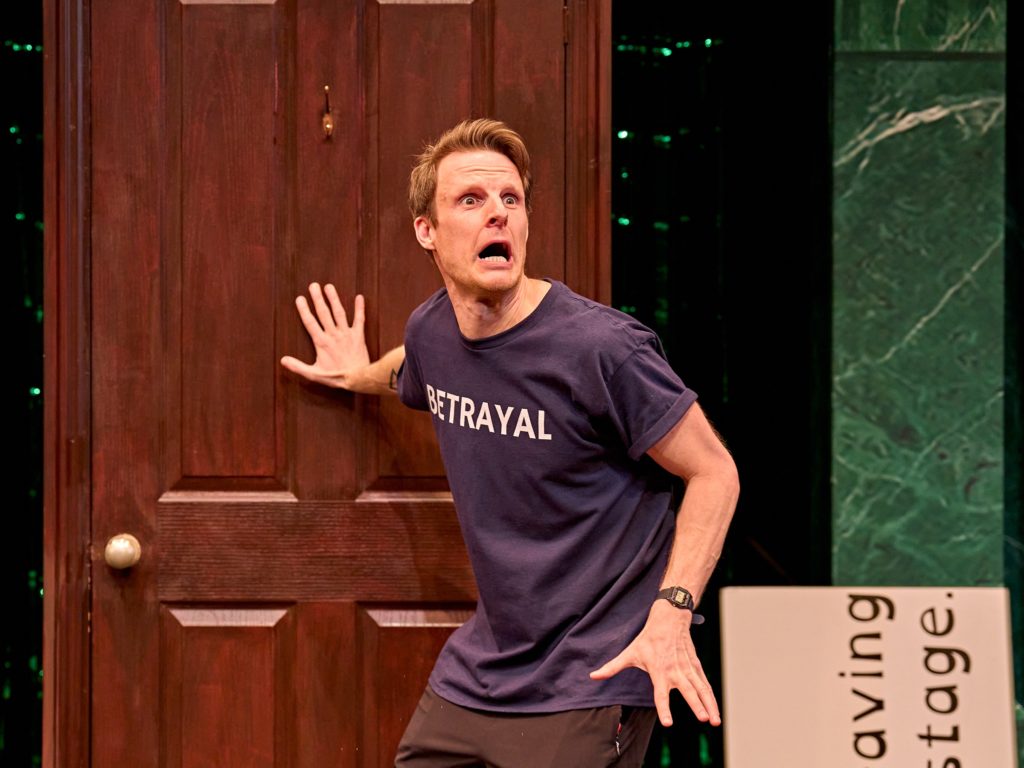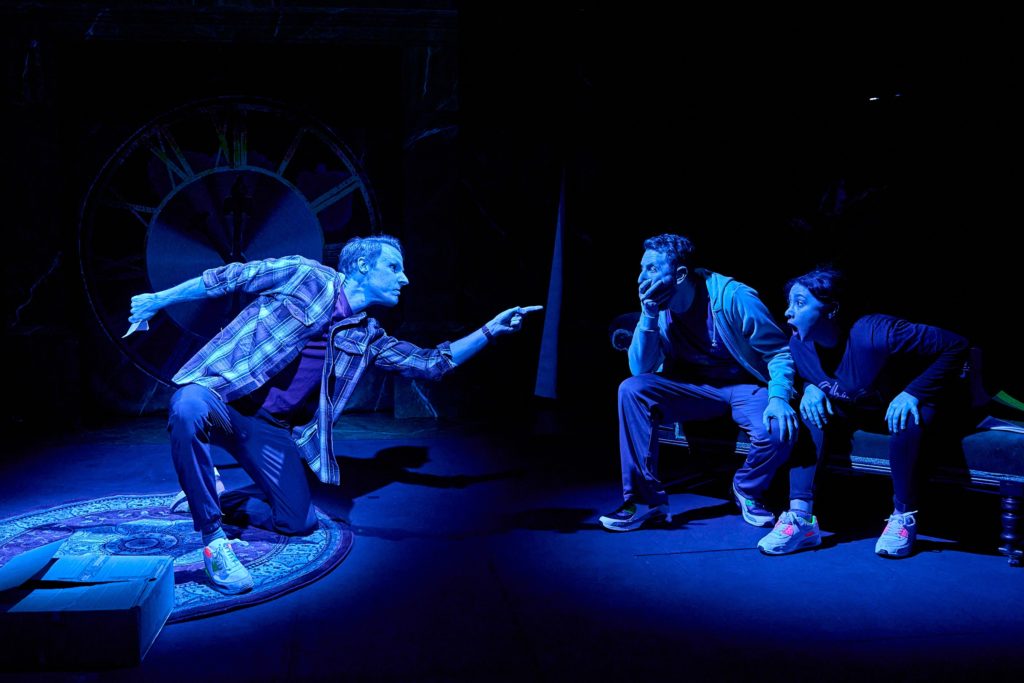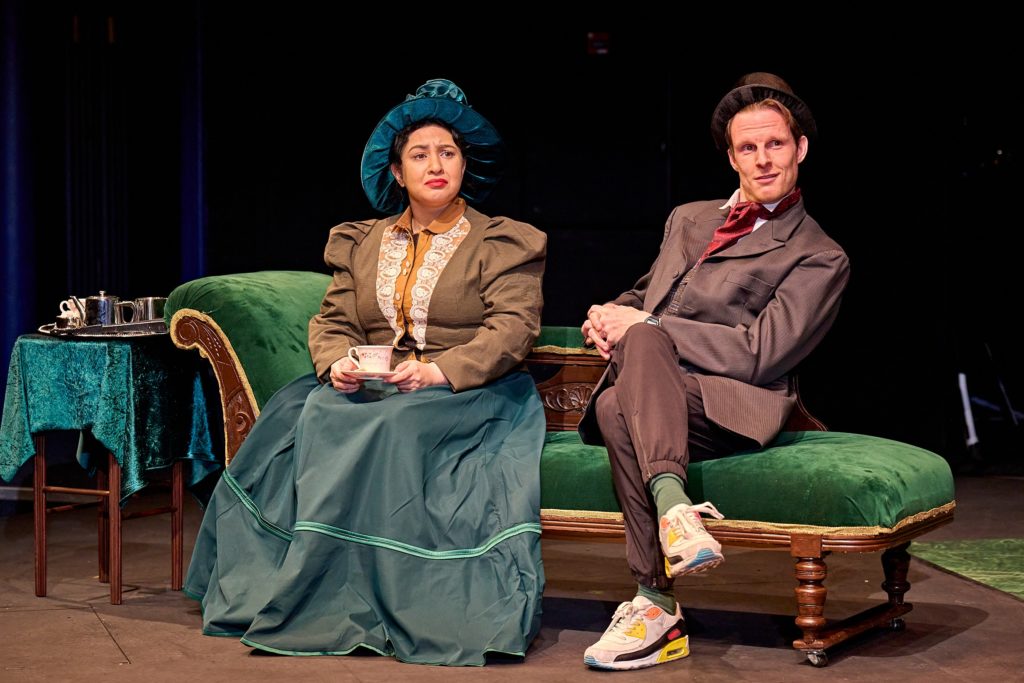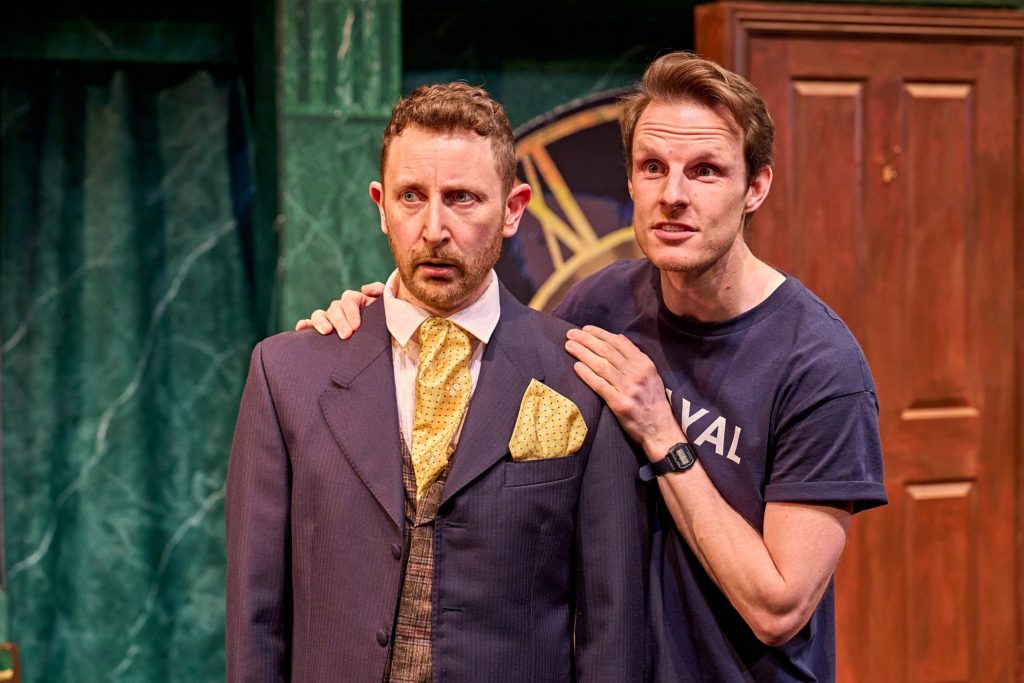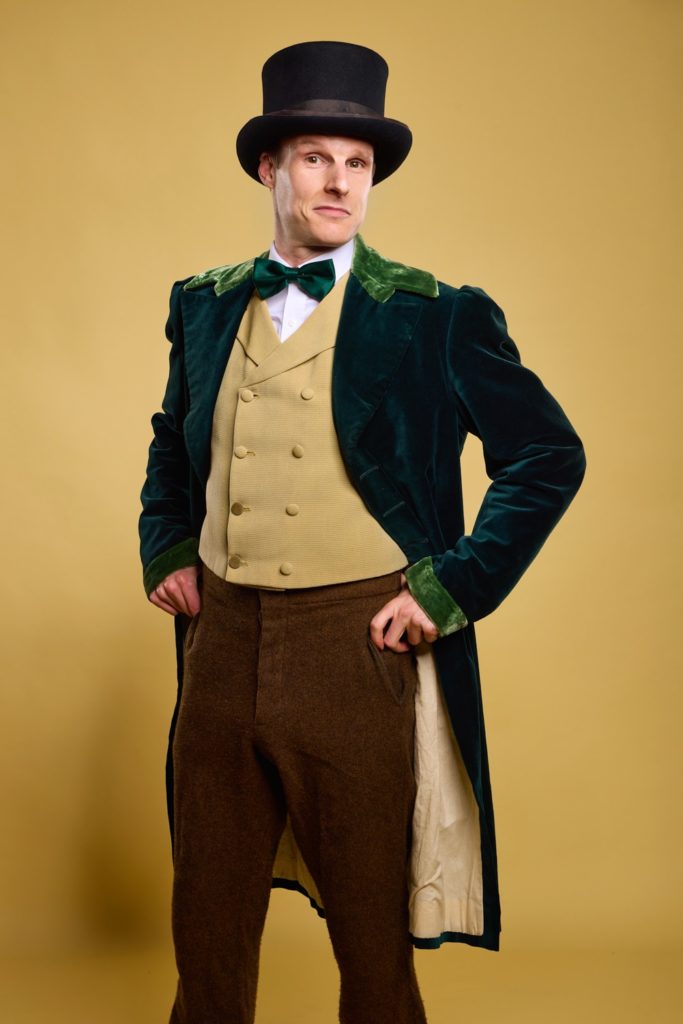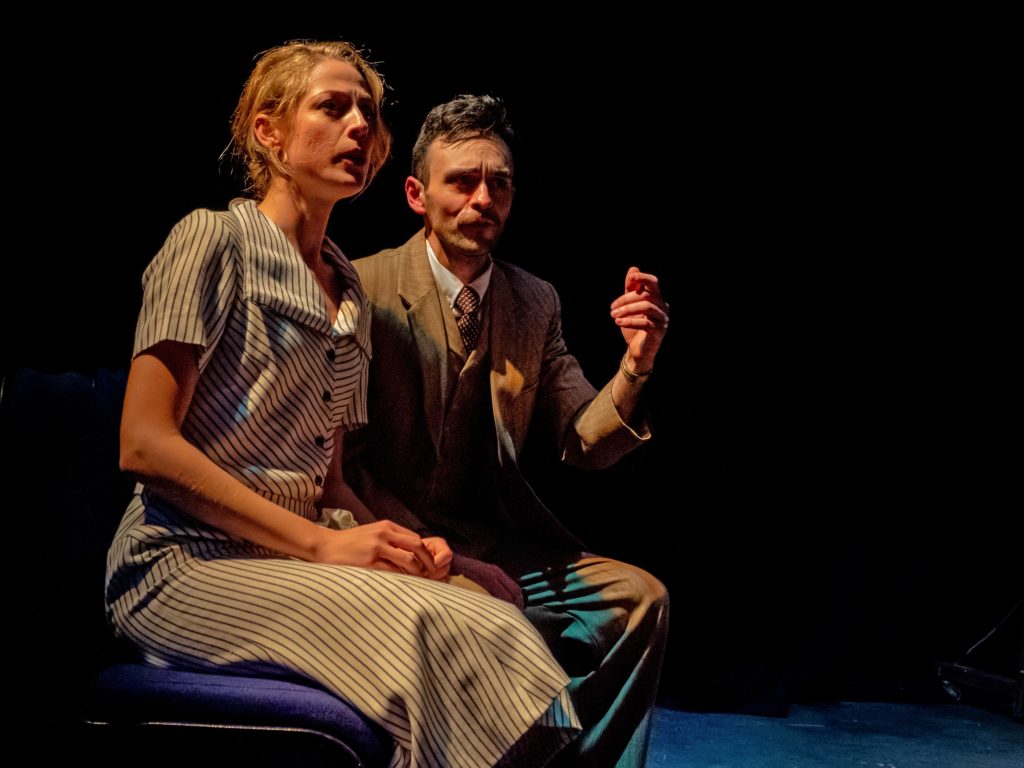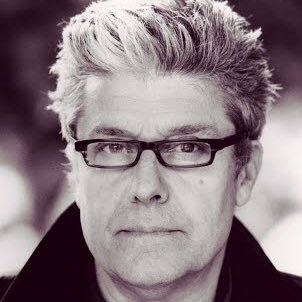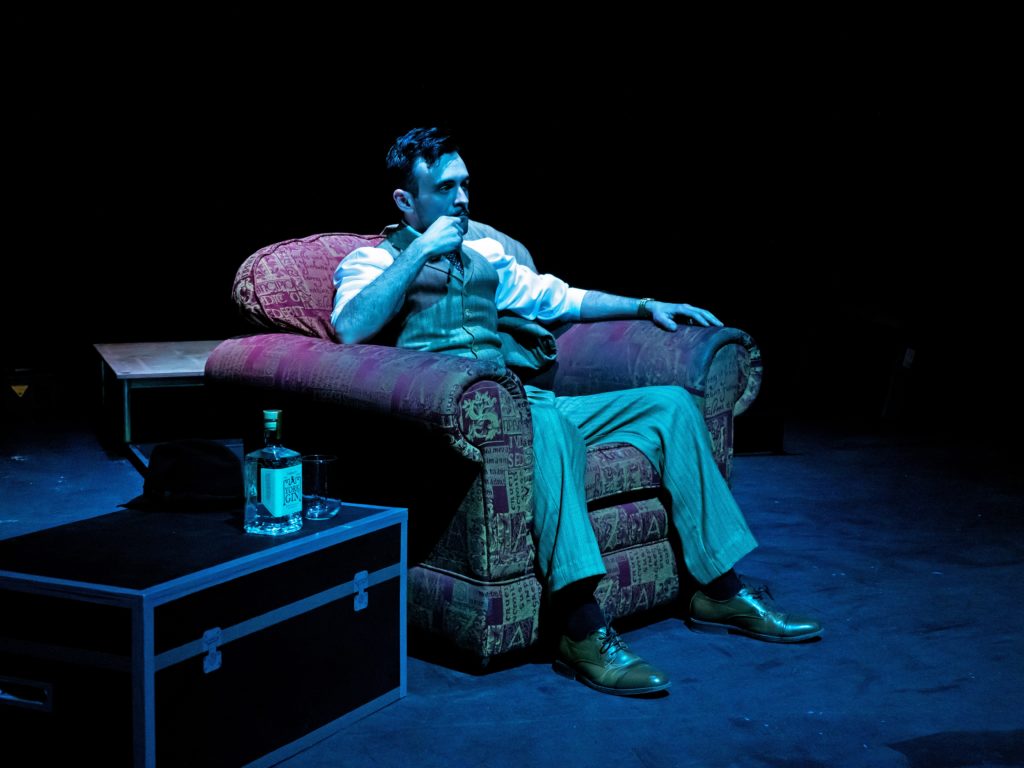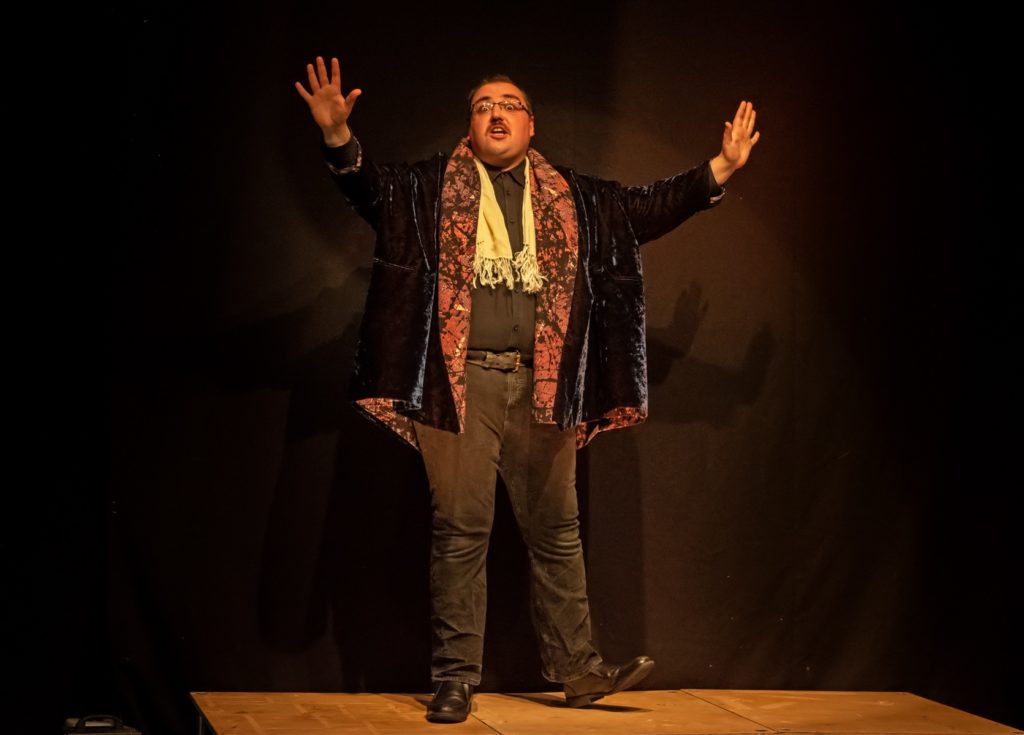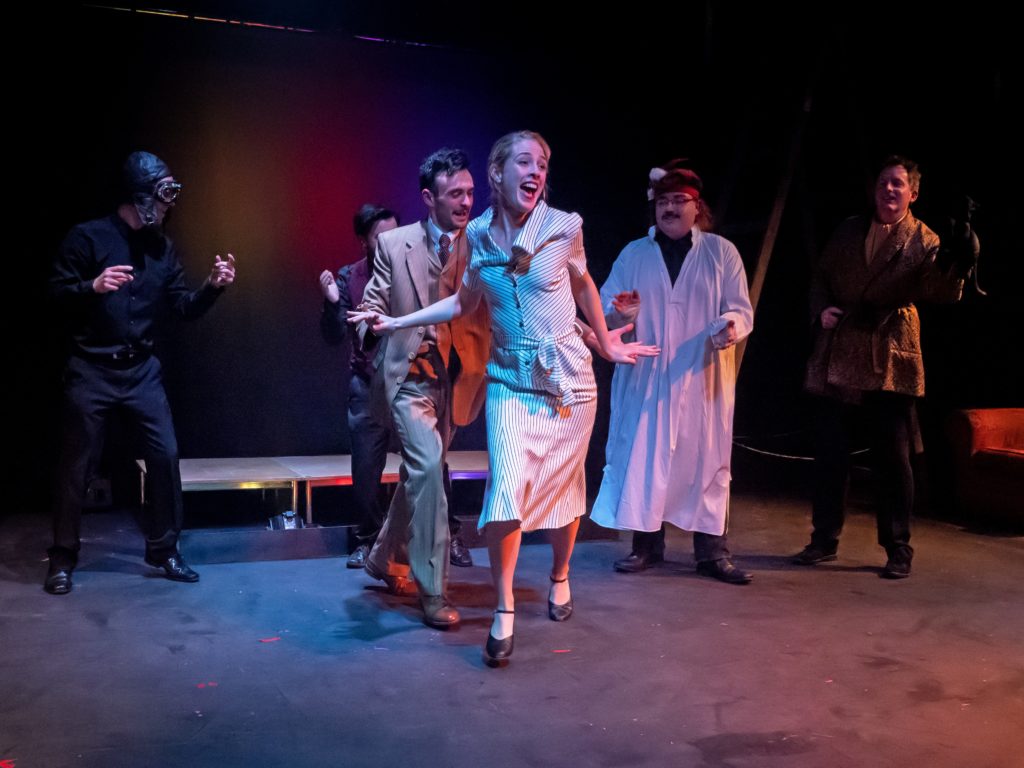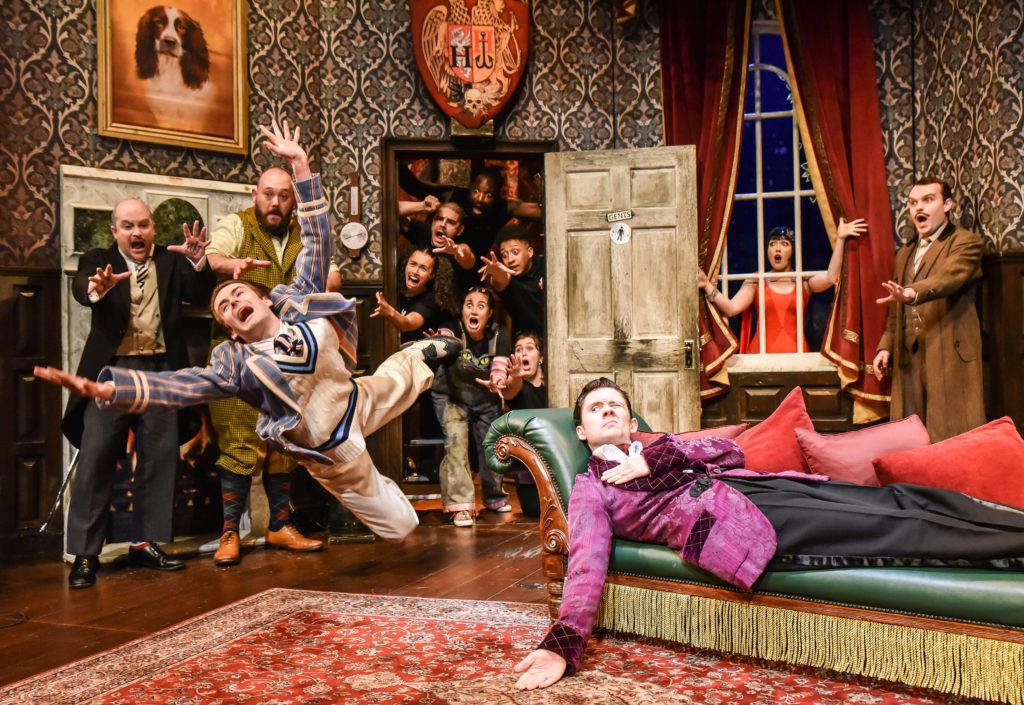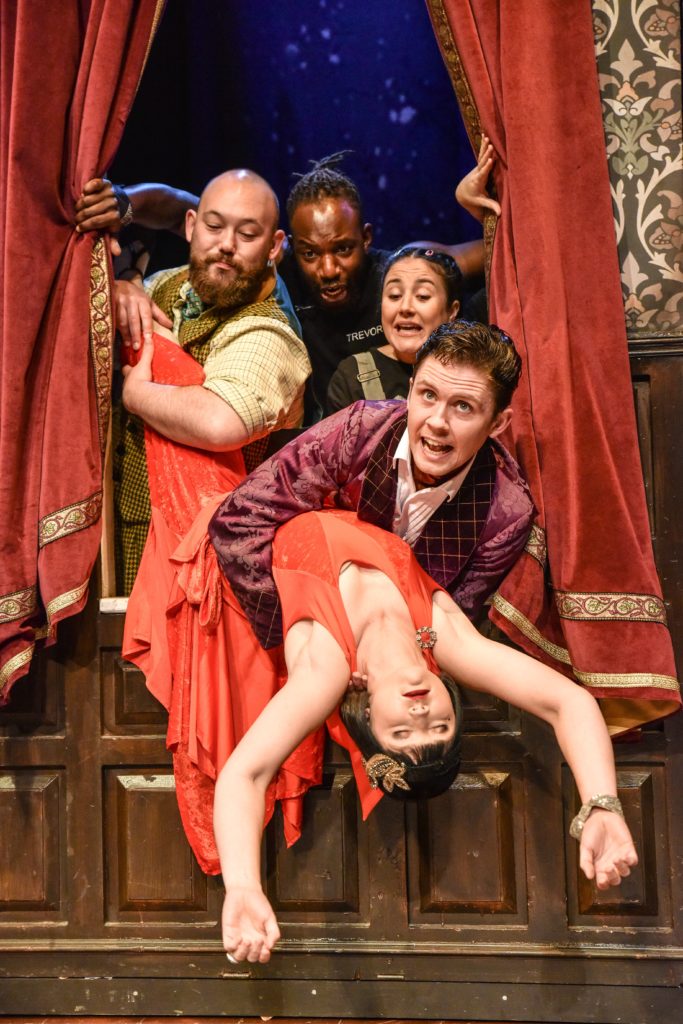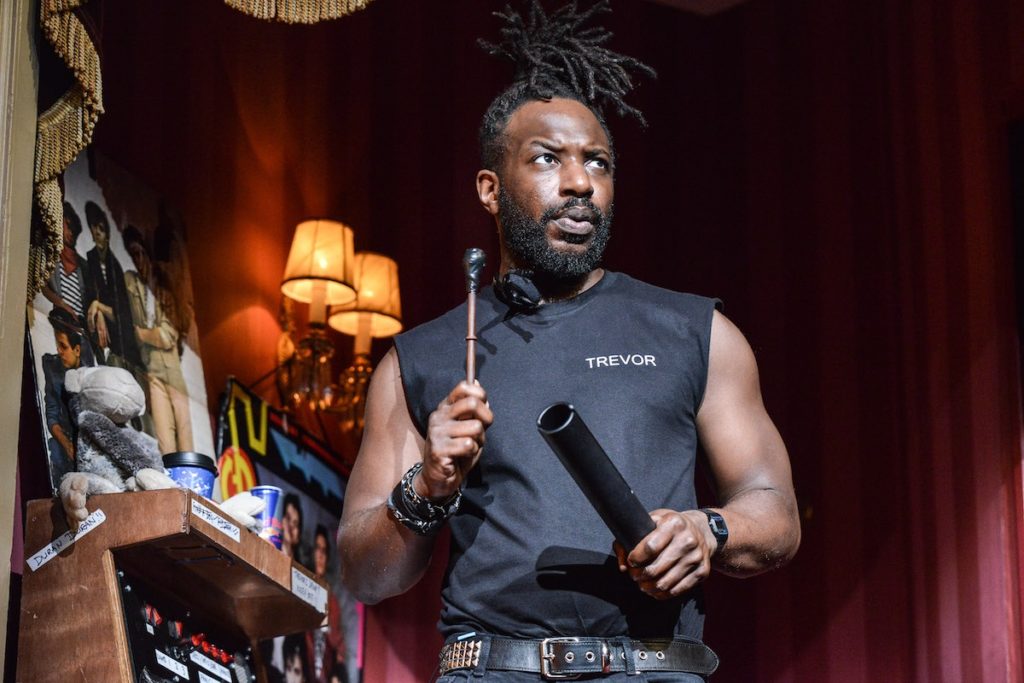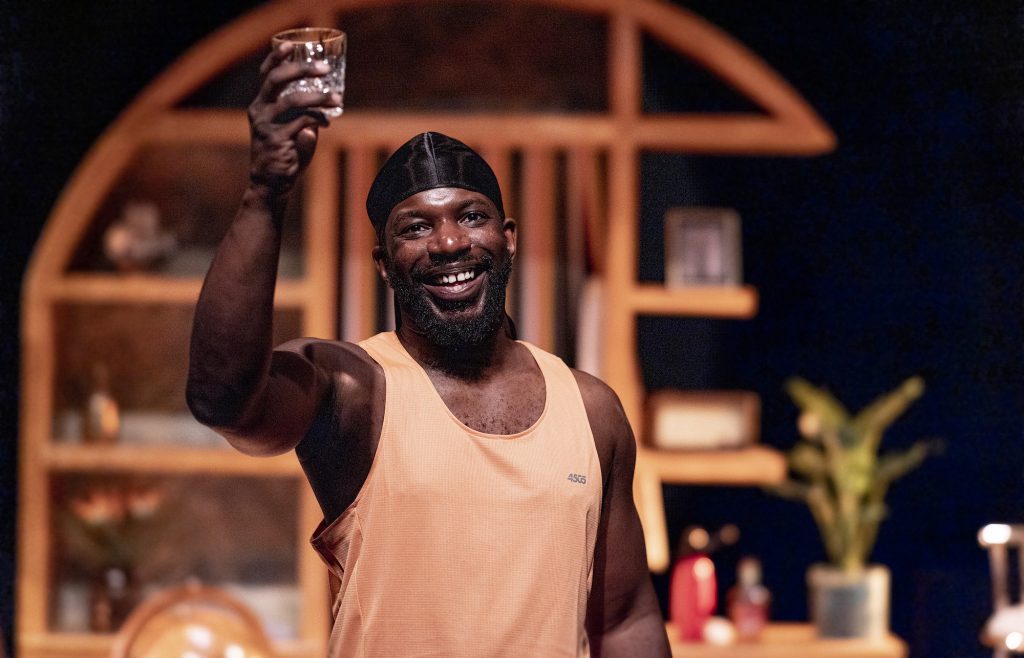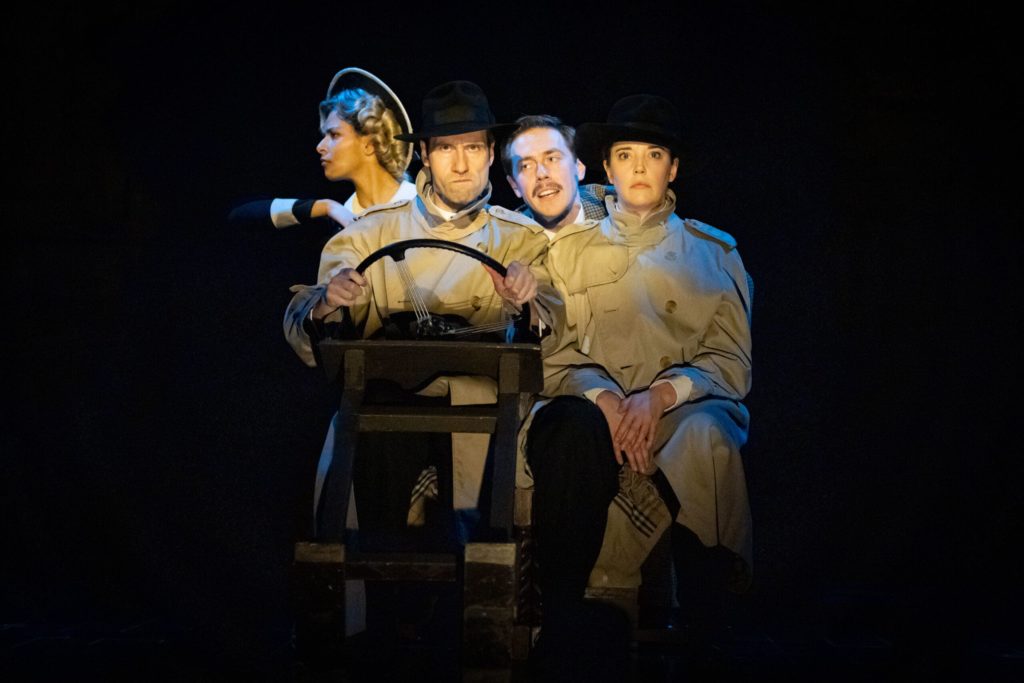
FIERY Angel’s spiffing touring production of The 39 Steps is back on the road after eight years, although Patrick Barlow’s rollercoaster ride through John Buchan’s tale of murder, suspense and intrigue and Alfred Hitchcock’s 1935 spy thriller is never far from a Yorkshire stage.
In that touring hiatus, Scarborough’s Stephen Joseph Theatre has staged it twice (in 2018 and 2023) and Harri Marshall directed York Settlement Community Players at Theatre@41, Monkgate, in November 2021.
Yet not everyone has strapped in previously for Barlow’s delirious, dextrous delight of a comic misadventure. “Brilliant theatre,” kept coming a voice from the dress-circle row behind, experiencing its ingenuity for the first time at Wednesday’s matinee.
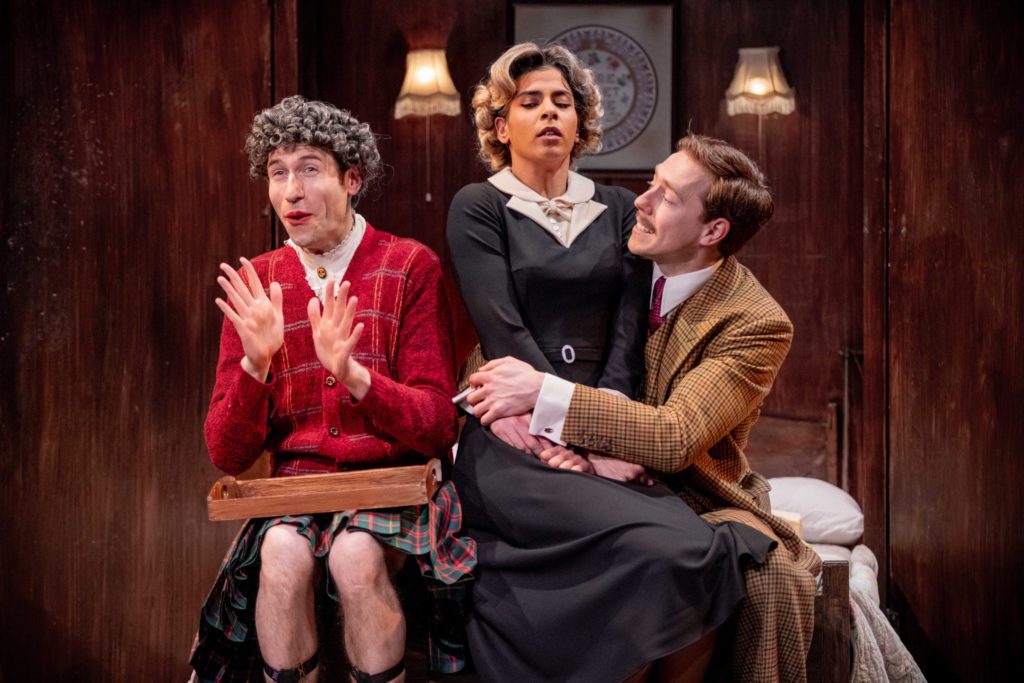
Mischief Theatre have a had a field day since the 2012 premiere of The Play That Goes Wrong, with clever, chaotic comedy rooted in mishaps, clowning pratfalls and exquisite comic timing. Yet Barlow’s play – and indeed North Yorkshire company North Country Theatre’s original 1996 concept by Simon Corble & Nobby Dimon that inspired it – pre-dates the Go Wrong brand, debuting at the West Yorkshire Playhouse, Leeds, in June 2005.
It has gone right ever since, especially under the direction of Maria Aitken in Fiery Angel’s tours, and now in the hands of 2024 tour director Nicola Samer, still true to the Aitken template but not exactly. The same, but Samer, as it were.
Tom Byrne, familiar to The Crown devotees from playing Prince Andrew aged 22 to 32 in the Netflix series, now turns his hand to another posh chap, the unflappable Richard Hannay in a helter-skelter play that hitches the storytelling of Buchan to the thrills, spills and daring set-pieces of Hitchcock’s thriller and then entrusts 139 roles to a cast of only four, most of them shared between Eugene McCoy’s Clown 1 and Maddie Rice’s Clown 2.
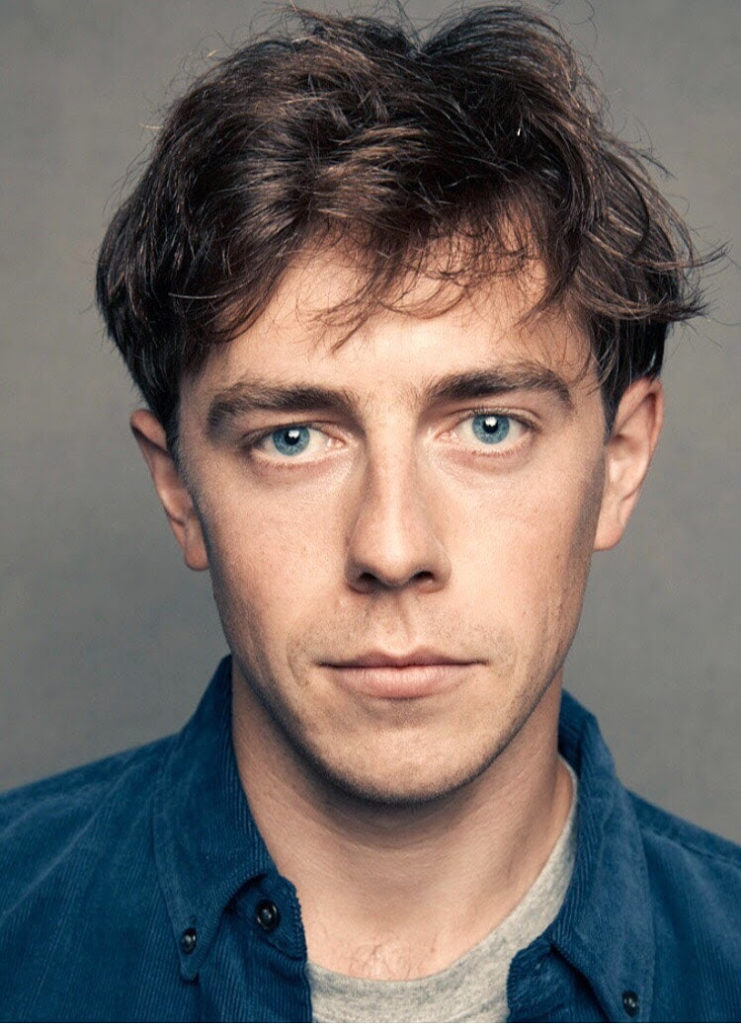
In the ennui of August 1935, Byrne’s lanky Hannay is in an emotional stew in his lonely, rented Portland Place pad, slumped in his leather armchair, pencil-slim moustache downturned, contemplating ending it all, in desperate need of… well, love, as it turns out later.
More immediately, this dashing, clipped and proper fellow must “find something to do…something mindless and trivial. Something utterly pointless. Something – I know! A West End show! That should do the trick!”
Barlow instantly establishes the “meta-theatre” of a play that revels in the possibilities and limitations of theatre, even in self-deprecation at what naysayers consider its ridiculousness, its bloated self-importance, as well as its wonder.
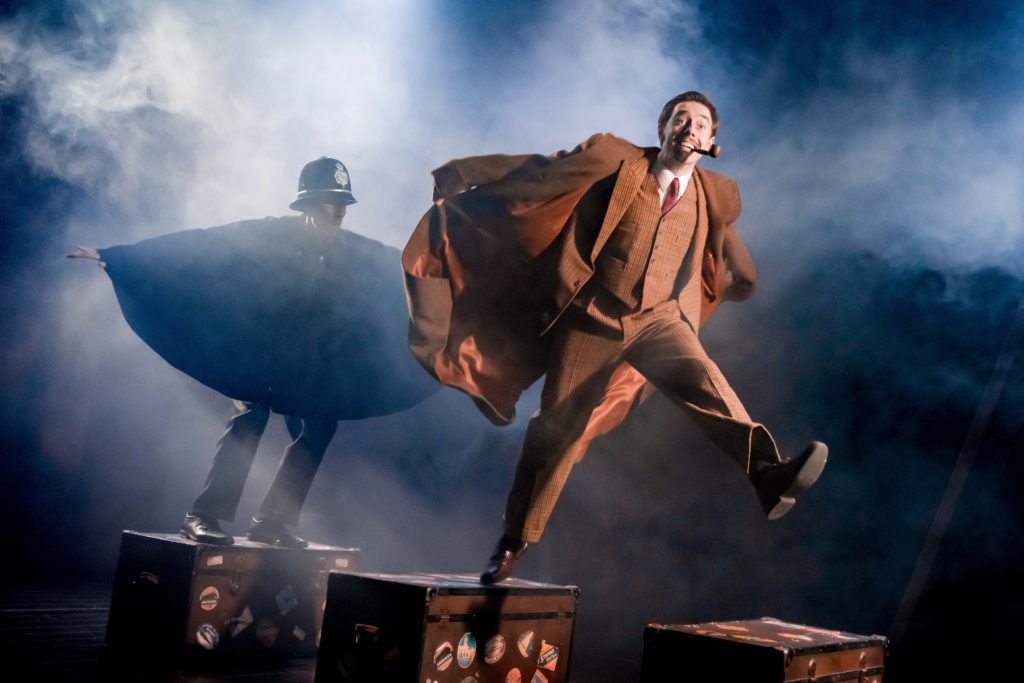
Hannay heads to the London Palladium for some excitement, but not the kind of excitement that ensues. The gun-firing, mysterious German fräulein in the box opposite him, Annabella Schmidt (Safeena Ladha), demands he must take her home, only to drop dead in his lap, knifed in the back.
Hanney takes flight – or rather a train ride – to Scotland, now murder suspect number one, in urgent need of crucial information to extricate himself from such accusations.
Policemen, secret agents, a farmer, a mysterious professor and assorted women stand in his way, delicered with breathless speed, breathtaking brilliance and comedic brio by the loose-limbed McCoy and the nimble Rice, the first woman to play Clown 2 in a Fiery Angel tour.
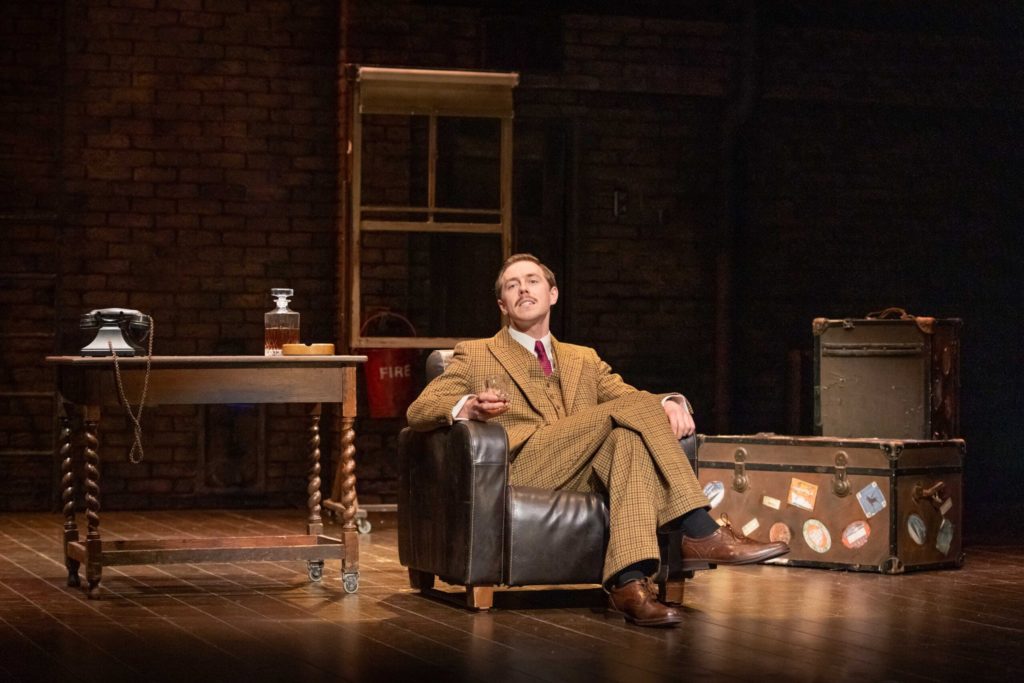
What’s more, as well as evoking Charlie Chaplin and even Samuel Beckett’s Vladimir and Estragon in Waiting For Godot, both are in cross-dressing mode, equally as likely to play a woman or a man, whatever a scene demands, Rice even performing two roles at once, turning back and forth in a half-and-half costume.
Ladha multi-tasks too, reappearing as an alluring, feisty femme fatale and a shy but obligingly helpful farmer’s wife.
Byrne’s handsome hero lets the darker side of Hannay poke through the surface, but the theatrical sleight of hand prevails, not least in the bargain-basement re-enactment of Hitchcock’s familiar scenes, topped off by a North By North West shadow-play spoof.
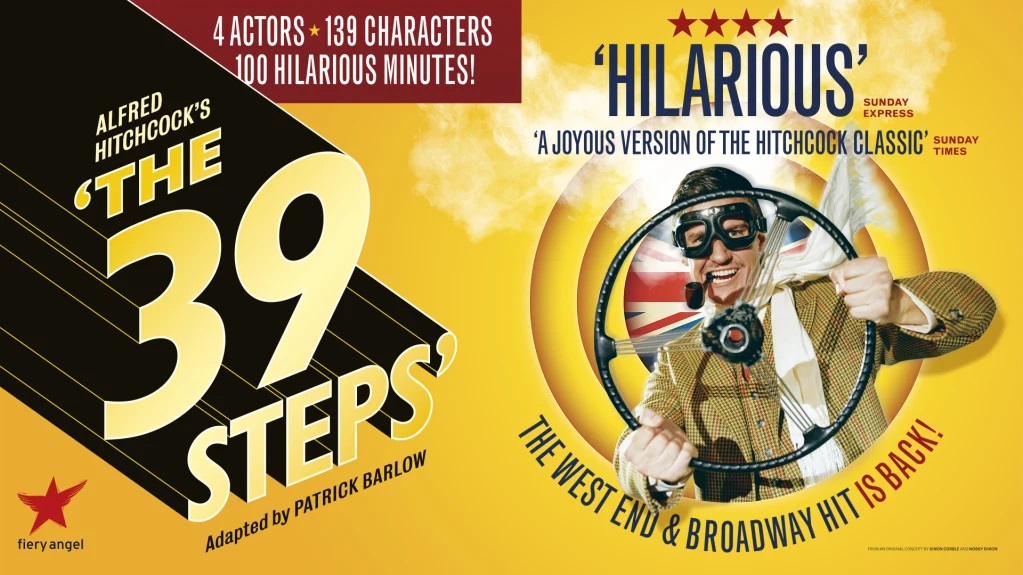
The second act slows a tad, but Barlow’s witty, period-pastiche dialogue keeps you on the edge, either suspenseful or in fear of another pardonably terrible pun. All the while, Samer’s cast must battle against the odds, improvising props and scenery, whether with stepladders for a bridge, or chairs for a car, moving the furniture on and off, and defiantly keeping their head above water, even when a ringing phone or dry-ice Scottish mist is miscued.
As the thrilling twists and turns of this Hitchcock homage somehow go off without a hitch, Byrne, Ladha, McCoy and Rice make a fabulous four, never missing a step in the cause of comedy.
Fiery Angel presents The 39 Steps, Grand Opera House, York, cutting a dash until Saturday, 7.30pm plus 2.30pm Saturday matinee. Box office: atgtickets.com/york.

